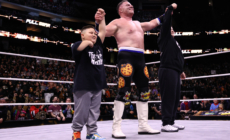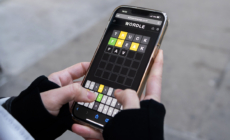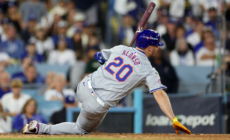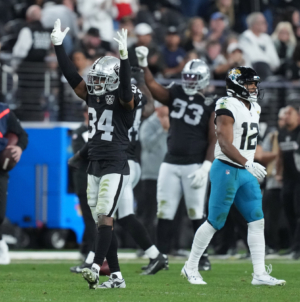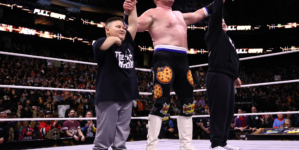-
Former WWE Champion Addresses Potential Royal Rumble Return - 37 mins ago
-
Trump and Biden, Make the Hostages Your Priority - 38 mins ago
-
Costco Guys More Popular Than Roman Reigns, Says Former AEW Superstar - about 1 hour ago
-
Organized Looting Throws Gaza Deeper Into Chaos - about 1 hour ago
-
Today’s ‘Wordle’ #1,283 Answers, Hints and Clues for Monday, December 23 - 2 hours ago
-
Artists We Lost in 2024, in Their Words - 2 hours ago
-
John Cena vs Logan Paul ‘On The Table’ For WrestleMania 41: Report - 2 hours ago
-
Ron Eliran, Israeli ”Ambassador of Song,” Has a Bar Mitzvah at 90 - 3 hours ago
-
Phillies Predicted To Cut Ties With Trade Acquistion Austin Hays - 3 hours ago
-
Mets Likely To Sign Pete Alonso Amid Depleted First Base Market - 4 hours ago
Would North Korea Fighting in Ukraine Make Conflict a World War?
This “is the first step to a world war,” Ukrainian President Volodymyr Zelensky gravely told Kyiv’s allies during a rallying trip to Brussels last week as reports of North Korean troops in Russia, thought to be destined for the front lines against Ukraine, trickled out of Kyiv and Seoul.
This is precisely what Ukraine’s allies in NATO have been hoping to avoid. The alliance has been wary of any move that could broaden the grinding conflict in Ukraine, already the largest land war in Europe since World War II, to other countries.
But while generally deemed a worrying escalation by officials across the world, a third world war is not looming just yet.
“Russia’s potential training and deployment of North Korean troops in Ukraine marks another critical stage in the conflict, but it will not bring about a wider global war,” said James Rogers, the director of research at the U.K.-based Council on Geostrategy think tank.

Russian Defense Ministry Press Service photo via AP
“While it could well escalate the conflict still further, it is not serious to suggest that the mere presence of these troops will broaden the conflict into a world war,” he said.
South Korean and Ukrainian officials said approximately 10,000 North Korean troops were being sent to Russia, including an initial batch of around 1,500 fighters.
South Korea’s spy agency said on Wednesday that an estimated 3,000 personnel had arrived at Russian bases, with the remaining 7,000 to be deployed by the end of the year, according to South Korean media.
More than two and a half years into full-scale war in Ukraine, both Kyiv and Moscow are looking for new ways to refill their exhausted ranks, with the winter unlikely to provide a reprieve from high casualty counts.
Russia and North Korea signed a defense pact earlier this year. North Korean troops swelling Russian ranks would likely be a very appealing prospect for the Kremlin, staring down the unpopular options of mobilizing more personnel or sending conscripts to Ukraine.
So far, no country outside the conflict has formally committed troops to the front lines, a move that would be a significant shift in the war and deeply worrying for Kyiv and its supporters.
Kyiv has deemed Pyongyang the most dangerous of Moscow’s allies and North Korea has already provided hefty deliveries of munitions and missiles to Russia.
U.S. Defense Secretary Lloyd Austin said on Wednesday that there was “evidence” of North Korean troops in Russia but it remained “to be seen” what activities they would take up. A North Korean representative to the United Nations called the reports “groundless.”
Kremlin spokesperson Dmitry Peskov described reports of North Korean troops arriving in Russia as “fake news” earlier this month. In fresh comments on Monday, Peskov said the reports were “contradictory” but did not explicitly deny the allegations.
“North Korea is our close neighbor, our partner, and we are developing our relations in all areas. This is our sovereign right,” Peskov said in remarks reported by Russian state media. “This should not worry anyone, because this cooperation is not directed against third countries.”
It’s highly likely North Korean troops have been deployed in Russia but it is not yet clear if they have been used in front-line fighting, British Defense Secretary John Healey said during a joint press conference in London on Wednesday with German Defense Minister, Boris Pistorius.
“I see this as a sign of desperation as well as a shocking escalation on North Korea’s front,” Healey said.
Belarus’ strongman leader, and key ally of Russian President Vladimir Putin, Alexander Lukashenko, told the BBC in an interview on Wednesday that “Putin would never try to persuade another country to involve its army in Russia’s special operation in Ukraine.”
Reports of North Korean troops being deployed are “rubbish,” Lukashenko said. It “would be a step toward the escalation of the conflict if the armed forces of any country, even Belarus, were on the contact line,” he added.
When Russian troops poured over Ukraine’s border in February 2022, part of Moscow’s invading force launched operations from Belarus.
Seoul’s National Intelligence Service (NIS) said last week that North Korea had sent around 1,500 special forces soldiers to the Russian port city of Vladivostok between October 8-13.
The spy agency said the North Korean soldiers, sent to a number of bases in Russia’s Far East, had been equipped with Russian military uniforms, Russian-made weapons and fake documents claiming the fighters were residents of regions in Siberia.
“It appears that they disguised themselves as Russian soldiers,” the NIS said. The soldiers are “expected to be deployed to the front lines as soon as they complete their adaptation training,” the agency added.
Footage published online by Russian and Ukrainian sources in recent days appears to show North Korean soldiers at a Russian training ground in the far eastern Primorsky region, which borders North Korea.
South Korea, deeply worried about North Korean troops in Russia, said it had summoned Moscow’s ambassador to Seoul while demanding the immediate return of Pyongyang’s fighters to the Korean Peninsula.
South Korea also said it was now considering sending weapons to Ukraine, a significant change from a long-held policy of swerving sending lethal aid to the front lines.
“We have adhered to a principle of not directly supplying lethal weapons, but we can review this more flexibly depending on North Korean military activities,” South Korean President Yoon Suk Yeol said on Thursday, according to the country’s Yonhap news agency.
Source link




